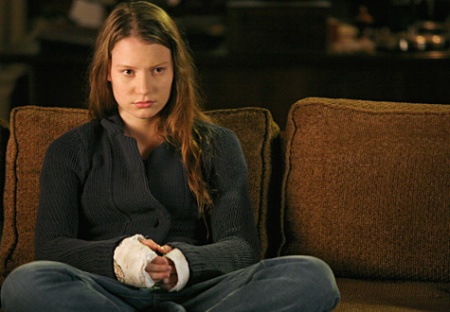I read this post on Dads and Daughters With Eating Disorders: Eating Disorders – Weights & Scales
To summarize:
Because her health is directly related to her weight. Measured by scales.
Her recovery is directly related to her weight. Measured by scales.
Her life is directly related to her weight. Measured by scales.
Weight matters.
And scales matter because they measure weight.
I posted a comment on this post, which hasn’t been approved yet, but I decided that I wanted to discuss the issue on Grey Thinking anyway.
Yes, weight is inexorably tied to health and to recovery. Weight restoration is vitally important to recovery. You can’t be recovered and still be below the healthy weight range. Professionals need to monitor weight. Some treatment decisions need to be made based on weight. In short, I am not at all arguing that weight is unimpotant for recovery.
With all of that said… I find a lot of diagnostic criteria and treatment approaches to be contradicting and frustrating. In therapy, you’re told that you are not a number. That you are lovable regardless of what the number on the scale says. That coping with food / weight is not okay. That eating should be mindful and emotional eating is unhealthy. You don’t have to be sick to deserve care.
But think — how is your health measured?
- weight, BMI, % of IBW
- calories, exchanges, % of meal plan completed
- heart rate, blood pressure, potassium, electrolytes
- # of binges / purges, # of laxatives, # of diet pills
- hours exercised
… see my point? Everything is measured in numbers.
I have an issue with your mental health being measured in numbers. From this point of view, gaining weight = a good week and losing weight = a bad week. That has just never been a linear relationship for me. I have bad weeks and gain weight, and vice versa. Sometimes I follow my meal plan and lose weight, and other times I restrict and gain weight. The system reinforces the necessity of communicating through your eating disorder. If you’re feeling crappy but follow your meal plan, then obviously you weren’t really feeling bad — if you were, you would have restricted. Plus, when you are at a healthy weight — ta da, end of treatment! You’re all better! Even if you feel as crappy as ever, you’re not sick anymore, so…..
Thankfully not all professionals practice this way, but measuring your progress in recovery by numbers is not unusual. I feel strongly that weight is just a piece of the puzzle… and while weight and eating are core components to eating disorders, by basing treatment on just these factors you are really limiting treatment. There are people who will stay sick because the system inforces that they need to be to get help. And that’s unfair…


